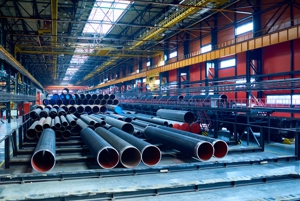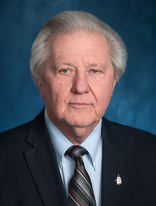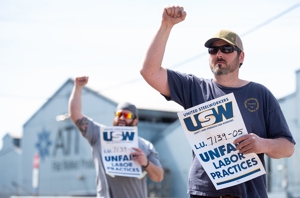A New Manufacturing Frontier

Tom Bixler and several hundred of his co-workers produced top-quality glassware at the Libbey Glass plant in Toledo, Ohio, over the years while keeping the aging equipment there operating through sheer grit.
They even set efficiency standards despite the steep odds and carried the company through Chapter 11 bankruptcy, all to ensure the sprawling manufacturing complex remained viable and a centerpiece of the local economy.
But while they’re rightly proud of all they’ve done to sustain the facility, Bixler and fellow members of the United Steelworkers (USW) know they need to continue innovating to build a more secure, sustainable future. They’re now embarking on a critical transformation of their plant that will not only safeguard Northwest Ohio’s glassmaking jobs for decades to come but help forge a new frontier in American manufacturing.
Bixler, president of USW Local 65T, joined U.S. Deputy Energy Secretary David Turk and U.S. Rep. Marcy Kaptur last week as they highlighted a federal grant award of up to $45.1 million that will enable the plant to install a pair of larger hybrid electric furnaces intended to boost efficiency, reduce pollution and expand employment.
The cutting-edge furnace technology—combining the advantages of oxygen fuel and electric melting to process the raw materials for glassmaking, reducing carbon dioxide emissions by up to 60 percent—has the potential to set a new standard for the industry and revolutionize glass production nationwide.
And this commitment to the glass industry represents just one part of President Joe Biden’s initiative to grow the manufacturing economy with clean energy and union jobs. In all, his administration this month announced $6 billion for 33 decarbonization and modernization projects, deploying a range of new technology, in iron, steel, chemicals, refining, cement, pulp and paper, and other industries.
Historic union-backed legislation—the Infrastructure Investment and Jobs Act and the Inflation Reduction Act—will fund the grants.
“This is something that’s going to blaze a whole new trail,” said Bixler, a mold maker at Libbey for 41 years, who considers the federal grant, to be matched by the company, as Biden’s investment in workers who have worked so hard to preserve the plant and keep the community strong.
More ...










